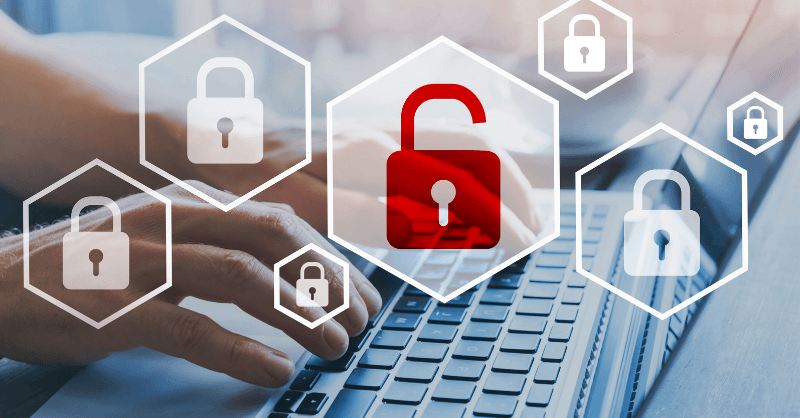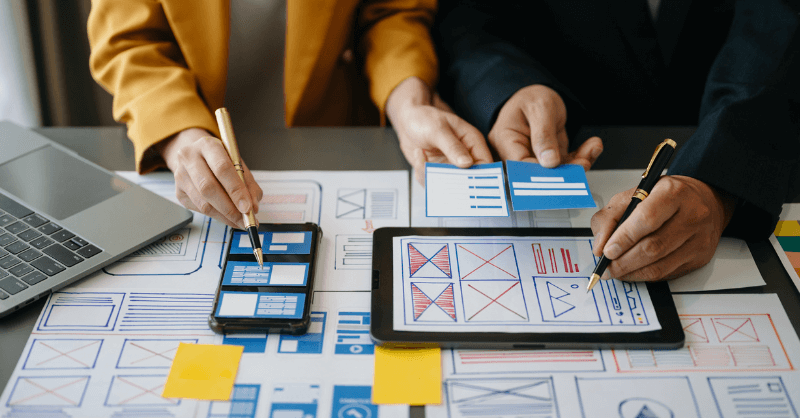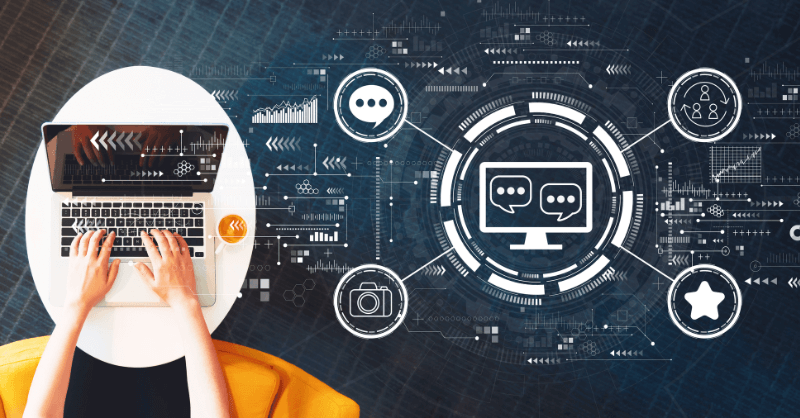In today’s rapidly changing world, the importance of continuous learning cannot be overstated. With new technologies, evolving industries, and shifting social norms, the need to constantly acquire new skills and knowledge is more important than ever. Besides, in today’s fast-paced world, the demand for continuous learning is increasing as technology, society, and the job market constantly change.
This blog will delve deeper into the importance of continuous learning and explore strategies for incorporating it into your daily routine. In addition, we will discuss common barriers to education and offer tips for overcoming them.
Whether you are a student, a professional, or simply someone passionate about learning, this blog will provide you with valuable insights into the power of continuous learning.
What is Continuous Learning?
Continuous learning is the process of acquiring new knowledge, skills, and abilities on an ongoing basis, even after formal education. Continuous learning involves a continuing commitment to personal and professional growth beyond the traditional confines of formal education.
In addition, continuous learning can also be within an organisation or personally, such as in lifelong learning. Moreover, it can come in many forms, from formal course-taking to informal social learning. It involves self-initiative and taking on challenges.
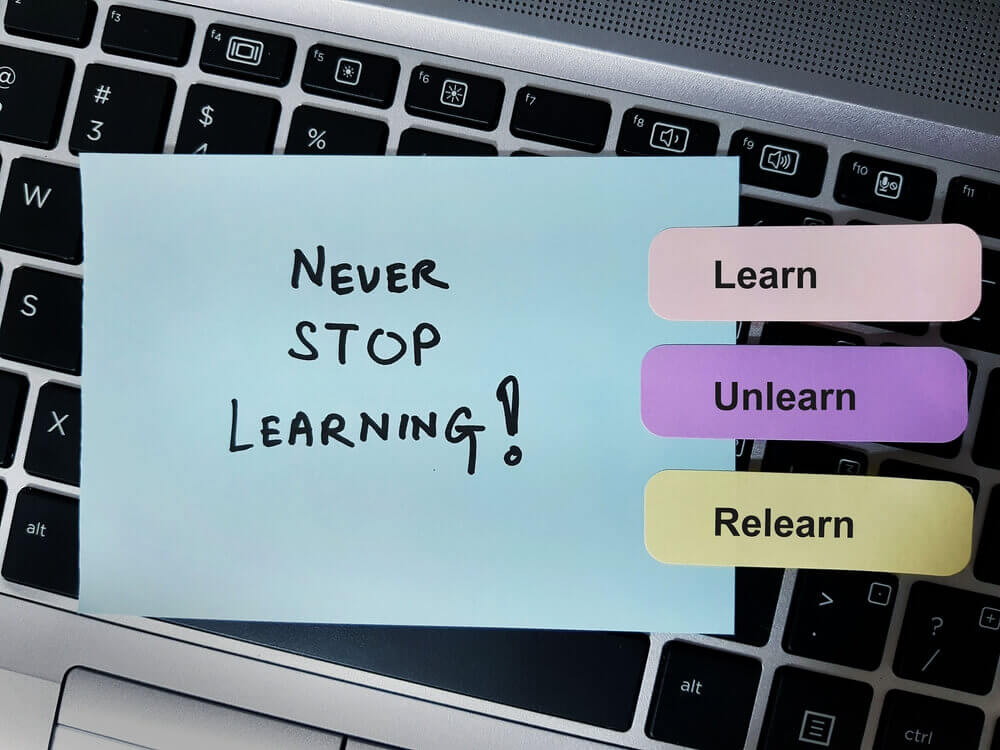
Why is Continuous Learning Important?
Continuous learning is crucial in today’s ever-changing world. With new technologies, shifting social norms, and evolving industries, the knowledge and skills that were once sufficient may no longer be enough. This makes it essential to commit to ongoing learning and development.
Also, continuous learning can enhance your job performance and career prospects by providing new skills, knowledge, and capabilities. Besides, employers often seek individuals who are dedicated to learning and development. Keeping up-to-date with new skills and knowledge can give you a competitive edge in the job market.
In addition to career advancement, continuous learning can contribute to your personal growth and development. It can be a fulfilling and rewarding experience, leading to a sense of accomplishment and increased confidence.
What are the Benefits of Continuous Learning?
Continuous learning has benefits for both organisations and individuals in terms of personal growth.
For organisations, continuous learning can improve employee performance and productivity, increase innovation and creativity, and enhance the organisation’s ability to adapt to changes in the market. By investing in employee training and development, organisations can create a more skilled and knowledgeable workforce, leading to better outcomes and higher overall success.
For individuals, continuous learning can lead to personal and professional growth, career advancement, increased job satisfaction, and a sense of personal fulfilment.
Besides, learning new skills and knowledge can broaden an individual’s perspective and provide new opportunities for advancement, while also contributing to personal development and fulfilment.
Overall, continuous learning is a win-win for organisations and individuals, leading to improved outcomes and increased success. Furthermore, by investing in ongoing learning and development, organisations can create a more skilled and motivated workforce, while individuals can achieve personal and professional growth.
Examples of Continuous and Lifelong Learning
Continuous and lifelong learning can take many forms, including formal and informal learning experiences. Here are some examples:
Formal Education
This can include pursuing a degree, taking courses or workshops, attending conferences or seminars, or enrolling in a certification program. Formal education provides a structured learning experience that can lead to new skills and knowledge.
On-The-Job Training
Many employers provide on-the-job training to help employees develop new skills and knowledge. This can include mentoring, coaching, job shadowing, or cross-training.
Continuous learning is essential for individuals and organizations alike. It not only enhances personal growth but also boosts productivity in the workplace. To further increase their efficiency, companies can consider providing language courses to educate their employees. By offering opportunities to become fluent in the German language, as well as exploring Lingoda’s French and Spanish classes, organizations can empower their workforce with valuable skills that transcend linguistic barriers. Such language courses can open up new avenues of communication and collaboration, enabling employees to engage effectively with clients and partners from diverse backgrounds.
Self-Directed Learning
Individuals can engage in self-directed learning by reading books, watching online tutorials, taking online courses, or attending webinars. This type of learning allows individuals to explore topics at their own pace and schedule.
Volunteering
Volunteering can provide opportunities to learn new skills and gain new experiences while giving back to the community.
Travel
Travelling can be a form of continuous learning, allowing individuals to learn about new cultures, history, and ways of life.
Hobbies
Pursuing a hobby can provide opportunities for continuous learning, such as learning a new language, taking up a musical instrument, or learning to cook.
Professional Development: Continuing education, attending industry conferences, and participating in industry associations and organizations can provide professional development and networking opportunities.
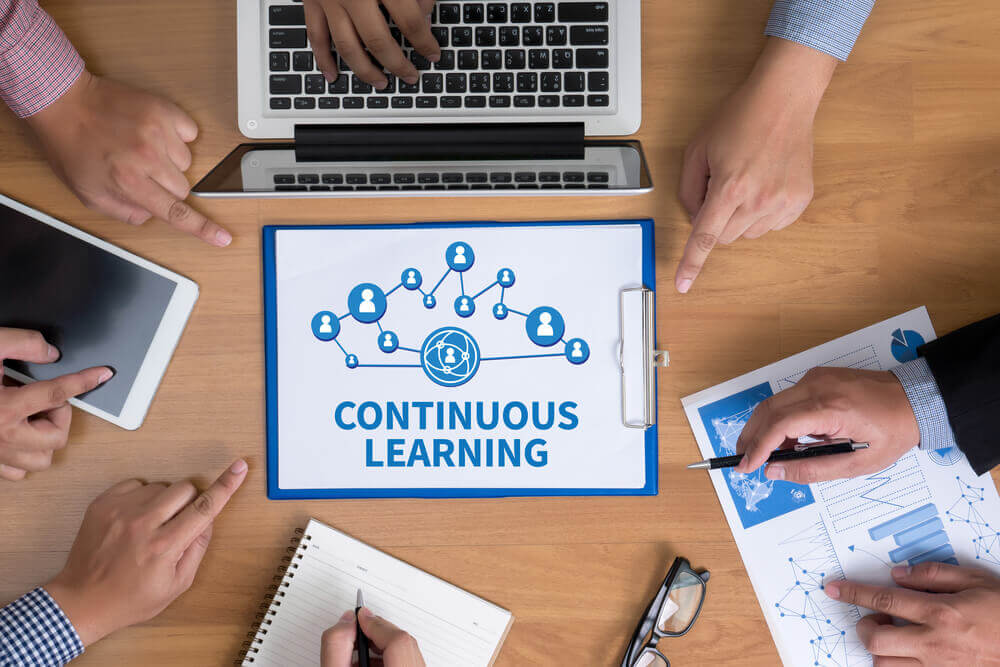
Elements of Continuous Learning
Becoming a continuous learning organisation is about more than training. It’s about learning. And learning is about creating an environment where employees can acquire knowledge or skills through experience, study or training. Elements of Continuous Learning: Continuous learning involves several elements, including
- Curiosity: Being curious and having the desire to learn are essential to continuous learning.
- Strive for a common organisational vision: Companies must share their vision in employment branding, orientation and onboarding, and throughout the employee life cycle. Employees need to see how their work helps the organisation achieve its vision.
- Focus: Focusing on specific areas of interest or skills is necessary to gain a deeper understanding and build expertise.
- Planning: Setting goals, developing a plan, and creating a schedule can ensure that learning becomes a consistent and ongoing part of one’s life.
- Learning Environment: Creating an environment conducive to learning can help individuals stay motivated and engaged.
- Accountability: Holding oneself accountable, and tracking progress can help to ensure that learning remains a priority.

How to Implement Continuous Learning in Your Organisation or Business
How to Implement Continuous Learning in your Organisation or Business: Here are some ways to implement continuous learning in your organisation or business:
- Develop a Learning Culture: Create a culture of continuous learning by encouraging employees to learn new skills and knowledge and providing opportunities for ongoing learning and development.
- Provide Training and Development Opportunities: Invest in training and development programs that align with organisational goals and employee career paths.
- Encourage Collaboration: Encourage collaboration and knowledge-sharing among employees to foster a culture of learning and development.
- Use Technology: Leverage technology to deliver training and development programs, such as online courses or webinars.
- Reward and Recognise Learning: Recognise and reward employees who actively engage in learning and development activities.
How to Implement Continuous Learning in Your Personal Life
Lifelong learning will help you acclimate to unpredictable changes – for example, losing your job and having to depend on new skills to find work.
By continuing to learn, you’ll step out of your comfort zone more smoothly and take on new job opportunities. Here are some ways to implement continuous learning in your personal life:
- Set Goals: Identify areas of interest or skills you would like to develop, and set specific learning goals.
- Create a Learning Plan: Develop a plan to achieve your learning goals, including a schedule and needed resources.
- Use Online Resources: Take advantage of online resources such as e-books, webinars, and online courses.
- Attend Conferences and Workshops: Attend conferences and workshops related to your areas of interest to learn from experts in the field.
- Seek Mentors and Peers: Connect with mentors or peers who can provide guidance and support as you learn and grow.
Pursue Hobbies and Interests: Pursue hobbies and interests that require continuous learning, such as learning a new language or taking up a new musical instrument.

What is the Difference between Lifelong Learning and Continuous Learning?
Lifelong learning and continuous learning are related concepts but differ in some key areas.
Lifelong learning is the idea that learning should continue throughout one’s life, including all learning that occurs after formal education. Besides, it is a holistic approach that values the development of the whole person and encompasses both personal and professional growth.
Furthermore, lifelong learning can take many forms, such as learning a new skill or hobby, taking courses, attending workshops or conferences, or pursuing personal interests.
On the other hand,
Continuous learning is a more focused approach that emphasizes ongoing development and improvement within a specific field or area of expertise. Also, it is the idea that learning should occur continuously throughout one’s career, including all learning that occurs in the workplace or through professional development activities.
Moreover, continuous learning can take many forms, such as on-the-job training, attending conferences or workshops, or participating in online courses or webinars.
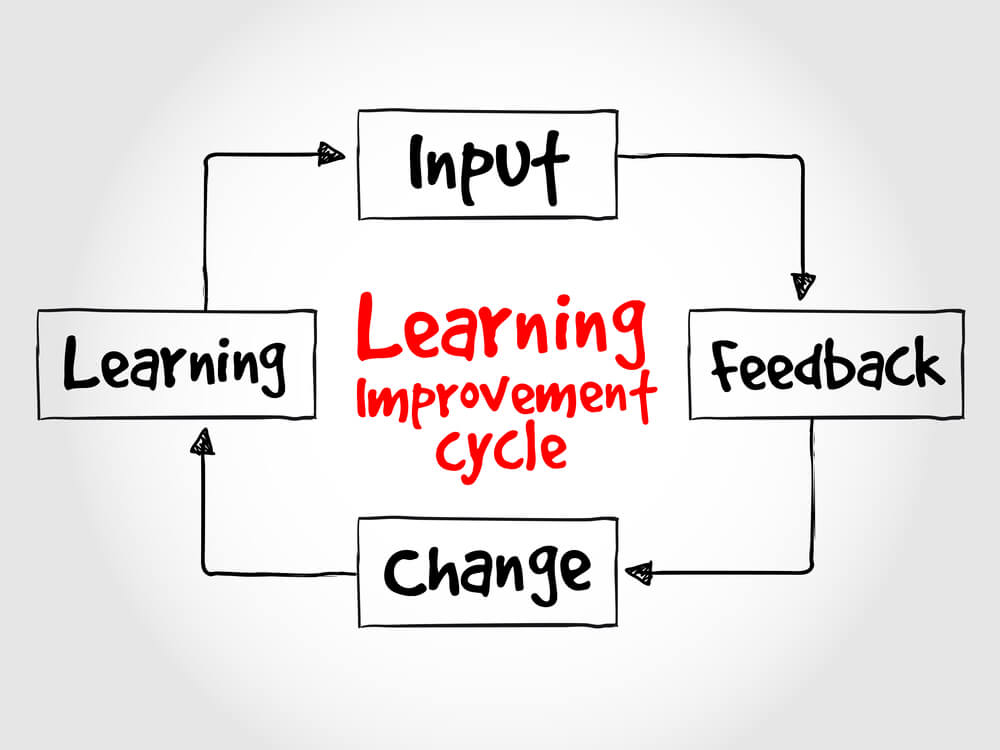
What is a Continuous Learning Framework?
A continuous learning framework is a structured and systematic approach to supporting ongoing learning and development. It involves assessment, goal setting, planning, implementation, and evaluation.
Also, a continuous learning framework can benefit organisations by ensuring employees have the skills and knowledge necessary to remain competitive and adapt to changing business needs.
Besides, it can also improve employee satisfaction, engagement, and retention by providing personal and professional growth opportunities.
Moreover, this framework can help organisations remain competitive and enhance employee satisfaction and engagement by providing opportunities for personal and professional growth.
In addition, by investing in continuous learning, organisations can create a culture of learning that values ongoing improvement and innovation.
Let’s Conclude to Continue
In conclusion, continuous learning is essential to personal and professional growth that can help individuals and organisations stay competitive and achieve their goals. With the rapid pace of change in today’s world, embracing a culture of continuous learning is more important than ever before. For organisations, continuous learning can improve employee satisfaction, engagement, and retention while providing a competitive advantage in a dynamic business environment.
The key to success is to adopt a structured and systematic approach to learning and development that supports ongoing improvement and innovation. With the right mindset and tools, anyone can embrace continuous learning and unleash their full potential. So, start your constant learning journey today and discover the benefits of lifelong growth and development!
Check out our Ultimate Personal Development Course: Physical, Mental, Psychic & Spiritual course and make yourself competent for the future.
FAQ
Why continuous learning is important for the brain?
Continuous learning is crucial for the brain because it provides a constant stream of new information, challenges, and experiences that can help to keep the brain active, engaged, and stimulated.
In addition, research has shown that learning new things, incredibly challenging and complex activities, can promote the growth of new neural connections in the brain, enhancing cognitive function, memory, and overall brain health.
Why is continuous learning meaningful?
Continuous learning is essential because it helps individuals and organisations stay competitive, adapt to changing circumstances, and achieve their goals. It also promotes personal and professional growth, enhances cognitive function and brain health, and improves the overall quality of life.
Why is continuous learning important in education?
Continuous learning is vital in education because it promotes a culture of lifelong learning, enhances knowledge and skill development, and prepares students for future challenges and opportunities.
In addition, education can foster critical thinking, creativity, and problem-solving skills essential in today’s rapidly changing world by encouraging students to engage in ongoing learning and self-improvement.
How to create a continuous learning culture in your workplace?
To create a continuous learning culture in the workplace, organisations should assess their current learning culture, set clear learning goals, provide learning opportunities, encourage constant feedback, and foster a culture of learning.
By offering accessible learning opportunities and rewarding employees organisations can improve employee satisfaction, engagement, and productivity while gaining a competitive advantage in a dynamic business environment.

Is it OK to learn 2 things at once?
Yes, it is possible to learn two things simultaneously, but it may require more focus and effort to avoid confusion and retain the information effectively. Therefore, it’s crucial to prioritise and organise your learning goals to ensure you are effectively absorbing the skill.
How to learn something new every day?
To learn something new every day, you can set a learning goal, use online resources such as websites, podcasts or apps, read books, articles or blog posts, listen to podcasts or watch educational videos. It’s also helpful to stay curious and open-minded, ask questions, and be intentional about seeking out new knowledge and experiences.






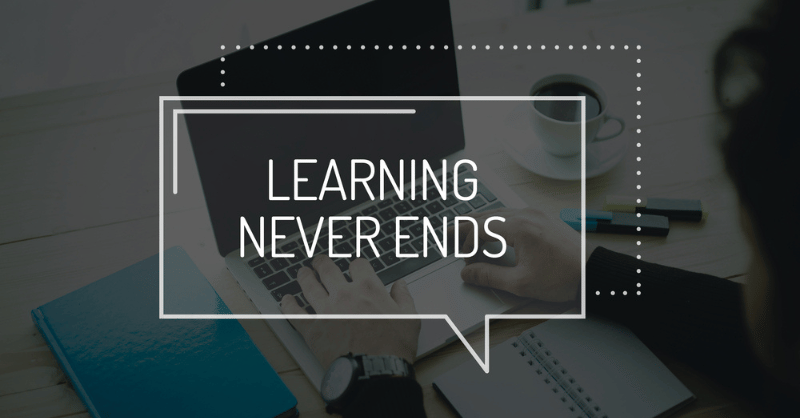
 April 05, 2023
April 05, 2023




